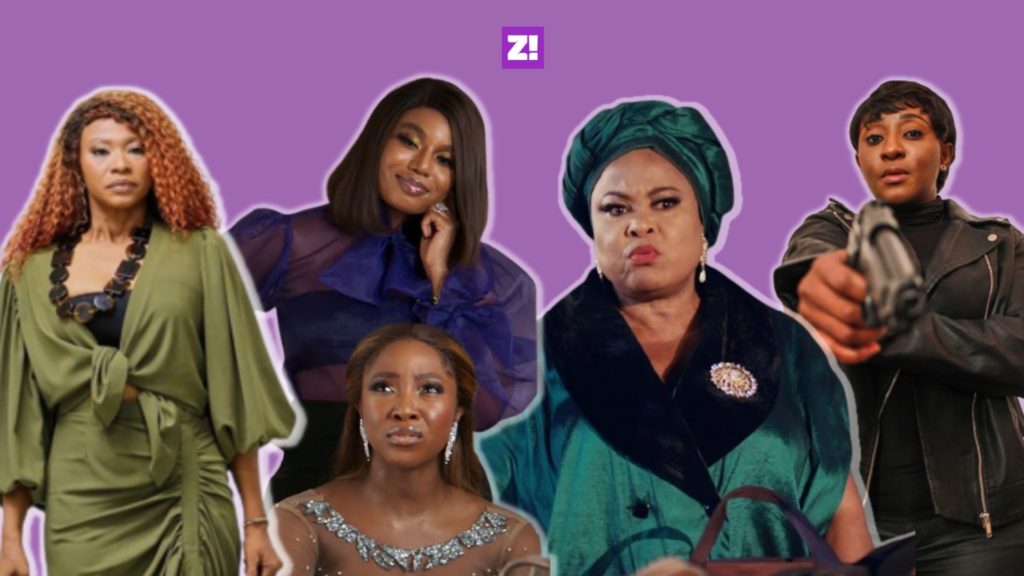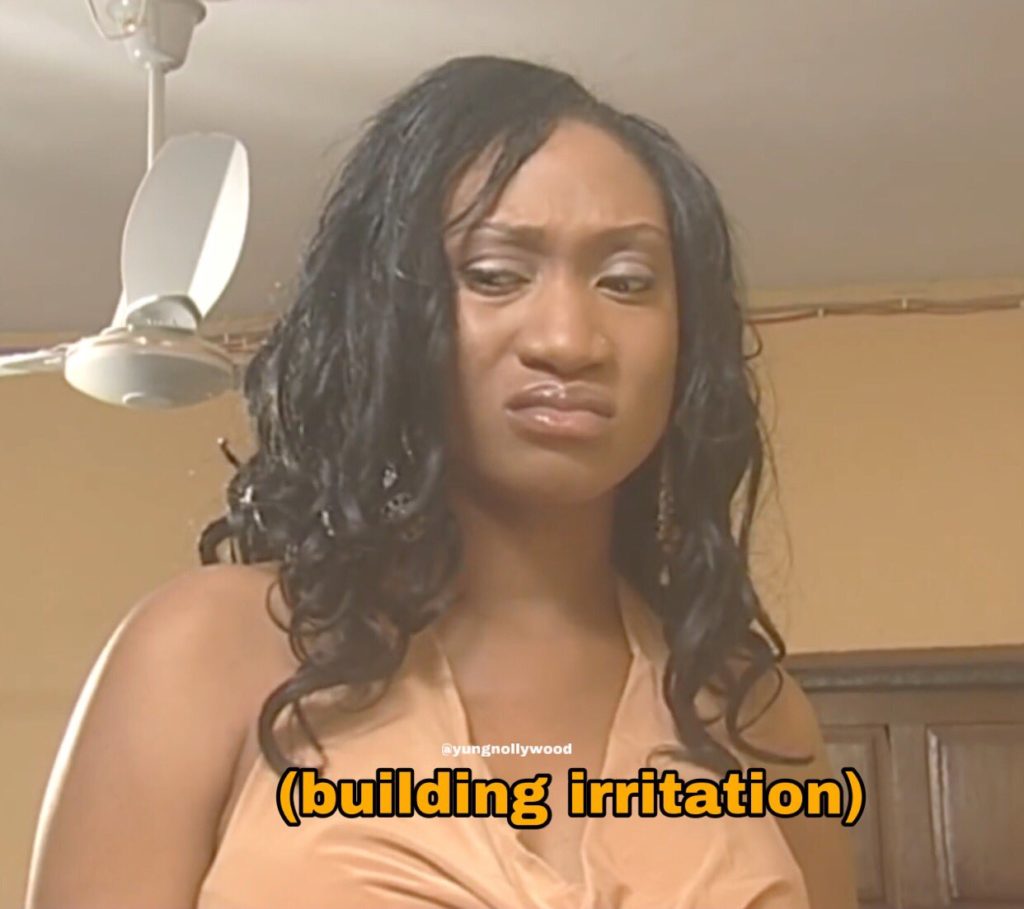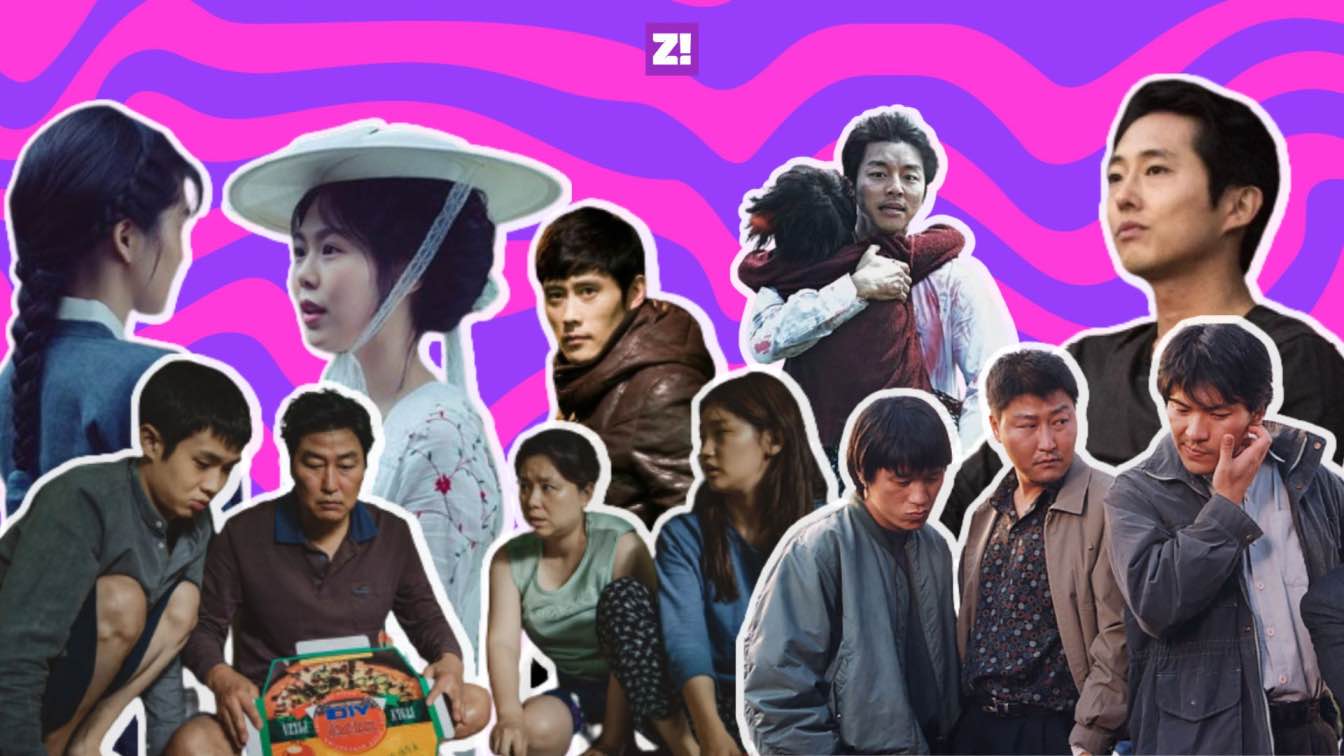Female characters in Nollywood have shifted from being punished for every mistake to being totally badass and getting away with it. We’re finally witnessing an era where women can be messy, chaotic AF or downright evil and still have the audience and script rooting for them.

If there’s one bible verse old Nollywood didn’t play with, it’s the famous Romans 6:23 verse that says, “For the wages of sin is death…” An unspoken rule that meant every character who fucked up morally or religiously would have to face the consequences of their actions. But for some reason (patriarchy, duh), men would find redemption at the end of the movie while the women just ended up as sad cautionary tales.
I can bet if you watched the film where that meme of your favourite old Nollywood baddie originated from, you’d throw hands at how she was treated

The wages of being a woman
Back then, the reward for premarital sex was an unwanted pregnancy, followed by an abortion in a dingy clinic and either death or a destroyed womb. Meanwhile, the man you had sex with gets to thrive and live his best life.
What if you saved yourself for marriage as a female character and met the love of your life? Well, through no fault of your own, he’d either use you for rituals or another woman will use juju on him (it’s never his fault), while the rest of the world looks to you to fast, pray and hold on to your home until some pastor breaks the juju right before the film fades into “To God Be The Glory”.
RECOMMENDED: Nollywood Needs to Go Back to Making Films About Juju
It was a lose-lose situation for the female characters I grew up watching. They served as either plot devices in the male character’s story or a conversation about respectability politics. These women were not allowed to fuck up or fall apart, and it wasn’t fair or realistic.
Today, while there’s room for improvement, women are finally leading their own story and dodging the bullets old nollywood society says karma would throw their way. It feels fantastic to root for Eniola Salami (King of Boys) as she blows shit up in a male-dominated crime underworld
We get to scream “yass” as Inem (Shanty Town) literally kicks ass and wonder how Uche (A Sunday Affair) still ended up with $250,000, a hot ass man and a baby after sleeping with her best friend’s man. None of these women are perfect, but that’s what makes them delicious to watch.
Let’s talk about what’s causing the change for a minute.
The short answer is women.
For the longest time, the problem with female characters in Nollywood was the feeling that they were written by men or women trying to serve the fantasies of these men — who else will believe that the man a woman said “no” to will end up being stinkingly rich, while she rolls on the floor in regret? These female characters couldn’t afford to be complex. They had to be one thing and one thing only.
With more female writers and directors occupying space behind the scenes, Nollywood is changing. These changes might seem inconsequential, but the truth is, they’re important. Society has repeatedly failed to give women opportunities, and when they do, these women are never allowed to make mistakes, even when their male counterparts are shitting all over the place. By showing these complex women who go to extremes and come back in one piece, Nollywood is telling women that it’s okay to mess up.
And though providing representation for women, no matter how unhinged they are, won’t immediately make society extend grace to real-life women, the creation of these characters is still a revolutionary act.
Please, don’t kill anyone sha.
ALSO READ: These 24 Nollywood Characters Are The Same But in Different Fonts




